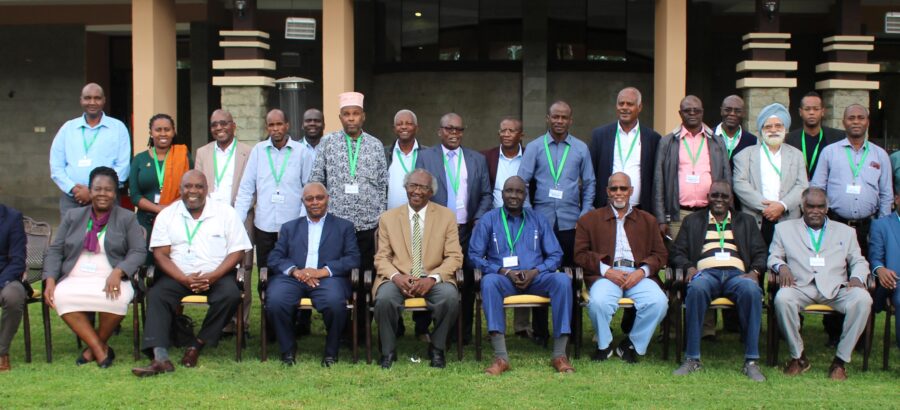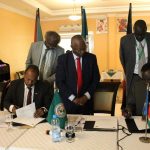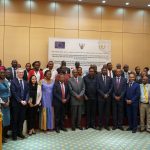The three day meeting, in Naivasha, was officially opened by Stanley Mutua on behalf of the Director of Livestock Production, while welcome remarks were made by Dr. Solomon Munyua, the Director of ICPALD, and Dr. Paul Opio, on behalf of FAO. All stressed the need for early warning (EW) systems to be brought together to complete the information.
With the continuous rains in TZ, KE, UG since October 2019, there is need to conserve fodder as a contingency plan for the expected upcoming drought period. Proper use of the animal feed balance sheet (AFBS) tool makes it possible to identify areas of deficit and surplus fodder which can be handy during drought period. The tool can support linkage with livestock insurance to purchase animal feed to safeguard livestock early enough before drought decimates livelihoods. Drop out pastoralists and interested communities can be engaged in production of fodder as an alternative livelihood, for sale to commercial livestock owners, that should be entirely community driven.
Feed is very high on FAO’s agenda to protect livestock based livelihoods. Locusts are currently affecting fodder in all IGAD Member States. There is need to understand the areas always affected in terms of feed quantity and livestock numbers, in order to avert impending catastrophe. There is need to harmonize plans that will bring together the Chief Veterinary Officers and Livestock Production Officer inorder to come up with a clear framework apart from animal feed action plan.
The meeting recommended the following:
- Countries to roll out the national feed security assessment tools (PLEWS, PET, animal feed balance sheet) with leadership of IGAD and support of FAO,
- Adaptation of the tested tools within the context of each country is important and should be an integral part of the process,
- Institutional arrangement; countries should identify the core teams.- Proper selection of sub-national level representatives who will undertake the tasks for ground implementation which is vital for success,
- FAO, IGAD, IGAD MS and development Partners should continue in resource mobilization drives to support the second phase of implementation (Eritrea, Ethiopia, South Sudan, Djibouti),
- IGAD to coordinate with MS for national awareness fora on initiating feed inventory and balance- stock taking missions.
Acknowledgement: ICPALD expresses appreciation to FAO for financing this activity.






